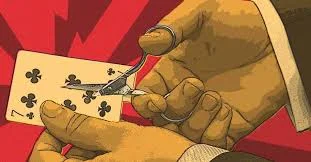Answer interesting questions interestingly!
That's the trick! (...to making your workplace writing impressive)
You probably assume I'm talking about something easy, a quick TRICK, something you can learn in a flash, a quick solution to a difficult problem. Presto! ...as if by MAGIC. These days, how we all crave as many quick FIXes as we can get!
If you understand the TRICK, it may be easier to learn, but performing the trick well--mastery--requires mindful practice, perhaps a great deal of mindful practice, and maybe even a coach. As Pfeffer and Sutton have said, "the gap between KNOWING and DOING is far, far greater than the gap between KNOWING and NOT KNOWING." (https://www.amazon.com/Knowing-Doing-Gap-Companies-Knowledge-Action/dp/1578511240)
Still interested???
If so let me explain this "slow" trick for making your writing impressive....
MOST PEOPLE HAVE THE WRONG IDEA ABOUT WORKPLACE WRITING
Having taught business/technical writing classes to undergrads and grad students over the past 35+ years, and having worked as a writing consultant for 30 of those years, I know well what people think the keys to impressive workplace writing are: 1)Learning the proper business/technical writing formats, and 2)Learning how "to sound" impressive--the formal style most people associate with business/technical writing...what amounts to rhetorical flourish.
But there are no FORMATS. And the formal, often pushy, tone associated with business/technical writing is either a smoke screen to hide ignorance or insecurity or downright evil. I advocate clarity. Simple, straight-forward CLARITY...stating the TRUTH (that which can be verified with facts) so a reader sees, without rhetorical interference, what is being said.
I understand that CLARITY is an extreme political stance, a high standard that would shrivel many enterprises and many people who are up to no good, who wish to put themselves and their own needs above the needs of others. CLARITY is a highly extreme stance, for sure.
If you're going to lie to me, at least do it as clearly as you can. That way I know exactly what you're saying, and I can consider what you've said more easily. (Shame on you for lying, but shame on me if I'm not smart enough or motivated enough to discover your lie.)
As for "proper formats," it's like asking how to make a cracker. There are as many different kinds of crackers as there are people who make crackers. I work a lot with the GAO (http://www.gao.gov/). Most of its reports are so-called "letter reports." They're like Triskets. No matter where you are in the world, every Trisket looks and tastes the same. The GAO Letter Report is its own formulation, its own format, a GAO brand. Sure, I could teach you how to make one. But I wouldn't be teaching you how to make all kinds of reports. There is no universal format, except for the email/memo format, which is merely displaying the "TO" "FROM" "DATE" and "SUBJECT LINE" up front.
What I can teach you is the art and science of document design. That way, you can create your own formats that serve your reader well.
SO HOW CAN YOU MAKE YOUR WORKPLACE WRITING IMPRESSIVE?
If learning formats and "the official style" (as Richard Lanham describes it: https://en.wikipedia.org/wiki/Richard_A._Lanham ) is NOT the way to make your workplace writing impressive, then how do you do it? What IS the trick?
As I said at the start, you must answer interesting questions interestingly. Here's what that means. (Please stop me if you're heard this before.)
I believe you must begin with impressive CONTENT...content that the actual READER finds important (not what the writer thinks is important), content that excites interest in the actual READER, content that will benefit the actual reader, will advantage the reader, will keep the reader from loss or harm.
As I've written (repeatedly), CONTENT COMES FROM THE READER'S QUESTIONS about an ISSUE (an area of risk/concern/interest for the actual READER). It's not about what the writer wants to transmit into space. Hey, I'm transmitting writing into space at this very moment. It can never be impressive unless a reader deems it so. If I can find a reader who is interested in the issue I'm writing about and who wants to have the question I'm answering answered, and who finds my answer satisfying, then my writing, if it's clear (big IF), should be impressive. That's the TRICK.
Know all your reader's questions about the issue in question. Then answer them. That's the most important part of "writing."
Be sure to put your answers (actually they're answers for the reader) first, then explain as needed. Use headings if you have several different points to make. Keep paragraphs under about 8 lines long. Write sentences your reader will understand. Proofread carefully before you hit SEND.
ANSWER INTERESTING QUESTIONS INTERESTINGLY.
